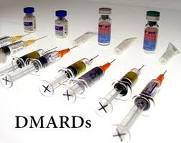Tags
arthritis, Celebrex, Celecoxib, COX-2 inhibitor, Disease-modifying antirheumatic drug, Health, Heart disease, Inflammation, Non-steroidal anti-inflammatory drug
Arthritis drugs and medication
Source: Arthritis UK
 Different types of arthritis are treated with different drugs. Drugs are given to improve the symptoms and, where possible, to slow or halt the progress of the condition. Depending on your type of arthritis your doctor may need to give you a combination of one or more specific drugs to deal with the disease itself, as well as more general drugs to help you with the pain, stiffness or inflammation that are the symptoms.
Different types of arthritis are treated with different drugs. Drugs are given to improve the symptoms and, where possible, to slow or halt the progress of the condition. Depending on your type of arthritis your doctor may need to give you a combination of one or more specific drugs to deal with the disease itself, as well as more general drugs to help you with the pain, stiffness or inflammation that are the symptoms.
There are four main groups of drugs used to treat arthritis:
- Painkillers (analgesics) – These reduce pain. They are used for many different types of arthritis and are often used together with other drugs.
- Non-steroidal anti-inflammatory drugs (NSAIDs) – These reduce inflammation of the joint as well as pain. They are used for many different types of arthritis, often along with other drugs.
- Disease-modifying anti-rheumatic drugs (DMARDs) – This group of drugs is used mainly in the treatment of rheumatoid arthritis but also in some other rheumatic diseases. They reduce pain, swelling and stiffness.
- Corticosteroids (steroids) – These drugs are very effective in controlling inflammation.
Examples of drugs used to treat arthritis

Non-steroidal anti-inflammatory drugs (NSAIDs)
 There are many different non-steroidal anti-inflammatory drugs (NSAIDs), for example aspirin, ibuprofen, naproxen, indometacin, diclofenac and ketoprofen. The name means they reduce pain and stiffness due to inflammation of the joints, without using steroids.
There are many different non-steroidal anti-inflammatory drugs (NSAIDs), for example aspirin, ibuprofen, naproxen, indometacin, diclofenac and ketoprofen. The name means they reduce pain and stiffness due to inflammation of the joints, without using steroids.
The ‘coxibs’, or COX-2-specific NSAIDs, are a family of drugs that perform the same function as standard NSAIDs in that they reduce inflammation, but they are less likely than standard NSAIDs to cause stomach upsets, heartburn and indigestion. Examples of coxibs include celecoxib (brand name Celebrex) and etoricoxib (Arcoxia).
Why are NSAIDs prescribed?
NSAIDs are helpful in the treatment of arthritis because they relieve pain and stiffness. They have no long-term effect on the disease. They are often taken in addition to simple painkillers.
When and how do I take NSAIDs?
NSAIDs are usually taken as tablets or capsules but many are available as a liquid suspension, as a suppository, or as a topical cream or gel.
Tablets or capsules should be taken with a full glass of fluid, with or shortly after food, and as directed by your doctor. Some NSAIDs are taken only once a day (especially those in a ‘slow-release’, ‘sustained-release’ or ‘retard’ preparation), while others are taken 2–3 times a day.
Your doctor will advise you about the correct dose to take. Usually a low dose is prescribed initially, and then increased if necessary.
For any patient who is prescribed NSAIDs (including coxibs), doctors have been advised to use the lowest effective dose for the shortest period of time.
How long do NSAIDs take to work?
NSAIDs work quickly, usually within a few hours, although the maximum benefit can take 2 weeks or sometimes longer.
What are the possible risks or side-effects?
Possible side-effects of NSAIDs include:
- stomach upsets
- heartburn
- indigestion
- rashes
- headaches
- wheeziness
- fluid retention
- a small increased risk of heart attack and stroke.
If you develop any new symptoms you should stop taking the drug and tell your doctor or rheumatology nurse specialist as soon as possible.
NSAIDs can damage the lining of the stomach and cause bleeding, particularly if taken in higher doses or over a long period of time. They should therefore only be used with caution and only continue to be used if they are controlling your symptoms. You should not take them if you have a history of indigestion or stomach ulcers. Drugs known as proton-pump inhibitors are commonly prescribed along with NSAIDs to help reduce the risk of side-effects on the stomach.
Caution is required in the use of NSAIDs if you have:
- asthma
- high blood pressure
- heart disease
- kidney problems
or if you take warfarin. Your should discuss this with your doctor.
Although the increased risk of heart attack and stroke with NSAIDs is small, NSAIDs are very unlikely to be prescribed if you have heart disease, if you have had a heart attack or stroke in the past, or if you have peripheral vascular disease (circulation problems in the limbs, usually in the legs). You should not take etoricoxib if you have high blood pressure which is not under control. Doctors have also been advised to be cautious about prescribing NSAIDs to people who have an increased risk of heart disease, such as people with high blood pressure, high cholesterol levels (hyperlipidaemia) or diabetes, or people who smoke. Further information regarding associations between NSAIDs, heart attacks and strokes is currently being researched.
Coxibs can cause serious, and sometimes fatal, skin reactions, although these reactions are rare. If you are concerned about your medication or if you need more information, talk to your doctor or rheumatology nurse.
What other treatments could be used instead of NSAIDs?
A number of other drugs are used in the treatment of arthritis and related conditions. Your doctor will discuss these other options with you.
Will I need any special checks while on NSAIDs?
Your doctor may wish to take your blood pressure. Generally speaking, monitoring blood tests (where a blood sample is taken) are not required for people on NSAIDs, although in certain situations these may be needed.
Can I take other medicines along with NSAIDs?
Some drugs, such as warfarin, interact with NSAIDs, so you should discuss any new medications with your doctor before starting them, and you should always tell any other doctor treating you that you are taking NSAIDs.
You should not take NSAIDs if you are allergic to aspirin. Discuss this with your doctor.
Some NSAIDs, such as aspirin and ibuprofen, are available without prescription. It is unwise to take more than one NSAID at any one time, and some people should not take NSAIDs at all. Do not take any other over-the-counter preparations or herbal remedies without discussing this first with your doctor, rheumatology nurse or pharmacist.
What about immunisations?
You can have immunisations while on NSAIDs.
Can I drink alcohol while on NSAIDs?
You can drink alcohol in moderation, although alcohol and NSAIDs can both upset the stomach.
Do NSAIDs affect fertility or pregnancy?
NSAIDs are not generally recommended during pregnancy. If you are planning a family or become pregnant you should discuss this with your doctor as soon as possible. Some recent studies suggest that NSAIDs taken around the time of conception may increase the risk of miscarriage. Paracetamol does not have this effect.
What about breastfeeding?
Some NSAIDs should not be taken while breastfeeding. The drugs may pass into the breast milk and could be harmful to your baby. Discuss this with your doctor.
Where can I obtain further information?
If you would like any further information about NSAIDs, or if you have any concerns about your treatment, you should discuss this with your doctor, rheumatology nurse or pharmacist.

Disease-modifying anti-rheumatic drugs (DMARDs)
This group of drugs includes gold, hydroxychloroquine, methotrexate and sulfasalazine.
 They are used mainly in the treatment of rheumatoid arthritis but also in some other rheumatic diseases. They reduce pain, swelling and stiffness. They do not work at once but may take several weeks to work. If you do not do well on one of these drugs, or if you develop any side-effects, then your doctor may try one of the others.
They are used mainly in the treatment of rheumatoid arthritis but also in some other rheumatic diseases. They reduce pain, swelling and stiffness. They do not work at once but may take several weeks to work. If you do not do well on one of these drugs, or if you develop any side-effects, then your doctor may try one of the others.
Immunosuppressant drugs
 Another group of disease-modifying drugs are immunosuppressant drugs. They are termed ‘immunosuppressant’ because they suppress the immune system (the body’s own defence system).
Another group of disease-modifying drugs are immunosuppressant drugs. They are termed ‘immunosuppressant’ because they suppress the immune system (the body’s own defence system).
They include azathioprine, ciclosporin, cyclophosphamide, leflunomide and mycophenolate. Methotrexate also has effects on the immune system. Because these drugs affect the immune system they may produce side-effects, and so need careful monitoring. Immunosuppressant drugs are often used to treat cancer but you can be reassured that your arthritis has nothing to do with this disease, and when used for arthritis lower doses of the drugs are administered.
Biologicals
A newer group of drugs are the so-called ‘biologicals’. These include the anti-TNF drugs (adalimumab, certolizumab pegol, etanercept and infliximab), rituximab and tocilizumab.
 These drugs can reduce joint inflammation in people with rheumatoid arthritis and may also be used in some other inflammatory diseases. These drugs are currently only being used in people who have not responded to other disease-modifying drugs.
These drugs can reduce joint inflammation in people with rheumatoid arthritis and may also be used in some other inflammatory diseases. These drugs are currently only being used in people who have not responded to other disease-modifying drugs.
Important points to remember about drug treatment of arthritis
- You may be on more than one drug for your arthritis. This is because different drugs work in different ways. A common combination is an analgesic, a non-steroidal anti-inflammatory drug (NSAID) and one or more disease-modifying anti-rheumatic drugs (DMARDs).
- If one drug does not work this does not mean that you will not respond to another. Similarly, if you develop side-effects with one drug this does not mean that you will develop the same problems with another drug.
- Some drugs, including several used in the treatment of rheumatoid arthritis, do not work immediately. Some can take several months to produce improvement.
- While most drugs are taken by mouth (orally) some are given by suppository or by injection. For example, gold is usually given by injection into a muscle (intramuscular injection), etanercept is given by injection under the skin (subcutaneous injection), and infliximab is given as a drip into a vein (intravenous infusion).
- Some drugs are started at a low dose which is gradually increased (e.g. methotrexate). Other drugs are started at a higher dose and depending on how you respond to the drug the dose may be reduced (e.g. gold injections).
General points to remember about all drugs
- Keep a list of all the drugs you take (including those bought over the counter) so that you can tell your doctor.
- Follow the instructions that your doctor or pharmacist gives you about taking your treatment. For example, anti-inflammatory tablets should be taken with or after food. If the instructions are not clear, ask for an explanation.
- If after starting a drug for arthritis you experience any side-effects, tell your doctor or rheumatology nurse specialist.
- Do not take medicines that you can buy without prescription without first discussing this with your doctor. These medicines may not be safe for you. For example, some contain anti-inflammatory drugs which can cause problems or react with the drugs that your doctor prescribes. This includes complementary medicines, e.g. herbal remedies or nutritional supplements.
- Never share your medicines with others. Your medicines may harm them, even if their symptoms are the same as yours.
- Keep medicines out of the reach of children.
- Some drugs must not be taken together with alcohol. If in doubt, ask your doctor.
- If you miss a dose, do not try to ‘catch up’ by taking extra tablets. If you are worried, ask your doctor or pharmacist.
- Drugs are only one aspect of the treatment of arthritis. Other helpful treatments include physiotherapy, occupational therapy and foot care (chiropody/podiatry).
And remember…
If you are in any doubt about your drug treatment for your arthritis, ask your doctor, rheumatology nurse or pharmacist for advice.
Related articles
- Topical therapies for osteoarthritis v. Oral Drugs (earlsview.com)
- Treating Psoriatic Arthritis with NSAIDs (everydayhealth.com)
- An NSAID Primer (everydayhealth.com)
- Why Alcohol and Rheumatoid Arthritis Don’t Mix (everydayhealth.com)
- Arthritis Pain Relief Drugs and Their Risks (everydayhealth.com)
- Even short term NSAID use increase risk after heart attack (cardiophile.com)
- Is Celebrex an effective treatment for arthritis? (zocdoc.com)
- Can NSAIDs prevent heart attacks? (zocdoc.com)
- Toddler’s Arthritis Almost Leads to Blindness (abcnews.go.com)
- Studies Examine Safety of Pain Killers among Older Adults (ahrq.gov)

Pingback: Medical Treatments for Arthritis Sufferers in Long Beach – Video 4 — Home Instead Long Beach
Pingback: Alternative Treatments for Arthritis: Experts look at the pros and cons of alternative arthritis therapies « Earl's View
Pingback: What is the incidence of cancer associated with biologics used for rheumatologic diseases « Earl's View
Pingback: Joint Stiffness and Rheumatoid Arthritis « Earl's View
Pingback: Anti-inflammatory medications. Not without risk. « Earl's View